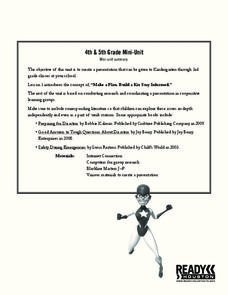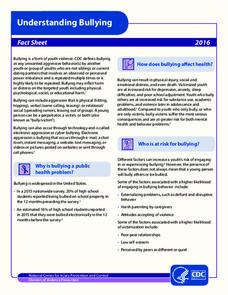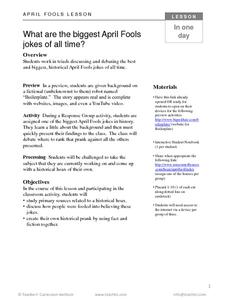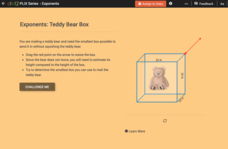Ready Houston
Make a Plan. Build a Kit. Stay Informed.
What is an emergency, and how can having a plan help make emergency situations safer? Pupils are tasked with creating a short presentation that can help teach younger children about emergencies, community helpers, and first responders.
Visa
Allowances and Spending Plans
Help youngsters understand how to manage small amounts of money by discussing an allowance and the difference between spending, saving, and giving.
Practical Money Skills
Shopping Wisely
Work on making good shopping choices with a fun economics project. Kids analyze the differences between brand names and generic products, bigger and smaller units for purchase, and different places they can shop for different items.
Practical Money Skills
Understanding Credit
Help your young consumers learn about credit and the importance of credit history. With a thorough lesson about the ins and outs of credit, as well as the potential pitfalls of having a line of credit, kids will be well-equipped to...
Practical Money Skills
Protecting Your Money
How can you tell if a commercial or salesperson is being misleading? Encourage your learners to protect themselves and their money with a lesson about consumer rights. They review laws that keep consumers safe from faulty claims and...
National Center for Injury Prevention and Control
Understanding Bullying
The anti-bullying movement has become a focus across the country. Become an anti-bullying expert with a informative factsheet that details bullying, who is affected by it, and how to prevent it from happening at your school.
Happy Housewife
Homemade Christmas Gifts
Running low on money? Out of ideas for gifts? Feeling crafty? Whatever the reason may be, homemade gifts are perfect for the creative person or the person trying to save a dollar here and there. Packed with hands-on crafts for kids, the...
Southern Poverty Law Center
Evaluating Reliable Sources
A lesson plan instills the importance of locating reliable sources. Scholars are challenged to locate digital sources, analyze their reliability, search for any bias, and identify frequently found problems that make a source unusable.
TCI
What Are the Biggest April Fools Jokes of All Time?
After working in groups to analyze primary sources related to a historical hoax, learners will discuss how people managed to be fooled and work to identify one of the biggest April Fools jokes in history.
Practical Money Skills
Saving and Investing
Learn the difference between saving money and investing money, as well as the advantages and disadvantages of each. Kids review banking and personal finance terms before studying the different ways that people can reach their financial...
CK-12 Foundation
Multiple Line Graphs: Jack's Jumpshot
What are the advantages to seeing multiple data sets on the same graph? Scholars explore this question as they manipulate the animation within the lesson. Questions within the interactive ask individuals to make comparisons across the...
CK-12 Foundation
Whole Number Exponents: Teddy Bear Box
Five questions—multiple-choice, fill in the blank, and discussion—make up an interactive that challenges scholars to mail a teddy bear using the smallest box possible without squishing it. A box with movable sides allows mathematicians...
CK-12 Foundation
Conversion of Decimals, Fractions, and Percents
Five questions—true or false and multiple-choice—challenge mathematicians to convert decimals, fractions, and percents. An interactive table displays how to write a portion of shapes in a variety of ways. A discussion question concludes...
CK-12 Foundation
Add and Subtract Decimals with Front-End Estimation: Wooden Beams
A six-question interactive tasks mathematicians to solve addition and subtraction problems using front-end estimation. Question types consist of multiple-choice and true or false. A set of wooden beams that can be measured using moveable...
Curated OER
Agriculture Awareness Through Poetry
Whether you are viewing a landscape painting of a farm, examining a still-life portrait of a bowl of fruit, or reading a descriptive poem about cultivating food, you can't deny that agriculture plays a major role in visual and language...
Museum of Tolerance
Where Do Our Families Come From?
After a grand conversation about immigration to the United States, scholars interview a family member to learn about their journey to America. They then take their new-found knowledge and apply their findings to tracking their family...
NOAA
Invertebrates
Crabs and lobsters ... yum! The 18th installment of a 23-part NOAA Enrichment in Marine sciences and Oceanography (NEMO) program focuses on invertebrate marine life. After the lecture slideshow, learners conduct an activity to sample...
Missouri Department of Insurance
Health Insurance
Confused by how health insurance works? This informational pamphlet and worksheet from the Missouri Department of Insurance offers explanations and examples to help future adults make important decisions regarding health insurance.
Federal Reserve Bank
Expense Tracking
Where does all your money go? Individuals keep a record of the money they spend over the course of 30 days. They then categorize where they are spending their money and write an essay detailing their findings.
Federal Reserve Bank
Cash Flow and Balance Sheets
What is your car worth? How much do you owe? Individuals create their personal cash flow and balance sheets. They learn the difference between an asset and liability using their personal information to complete the activity.
World Intellectual Property Organization
Learn from the Past, Create the Future: Inventions and Patents
3D printers, selfie sticks, smart watches. GPS, self-driving cars, YouTube. Imagine life without inventions. Believe it or not, these items were all invented in the last 10 years. Inventions, and the inventors responsible for them, are...
Chicago Botanic Garden
Personal Choices and the Planet
The last activity in the series of four has individuals determine steps they can take to reduce their carbon footprints and then analyze their schools' recycling programs. Through a sustainability audit, they identify how and where their...
NOAA
Microfriends
Is there medicine found in the organisms that live deep below the surface of the ocean? The fifth lesson in a six-part series has learners team up to research bacteria and the relationship it has with nearly every living thing on Earth....
NOAA
What Killed the Seeds?
Can a coral cure cancer? Take seventh and eighth grade science sleuths to the underwater drugstore for an investigation into emerging pharmaceutical research. The fifth installment in a series of six has classmates research the wealth of...

























